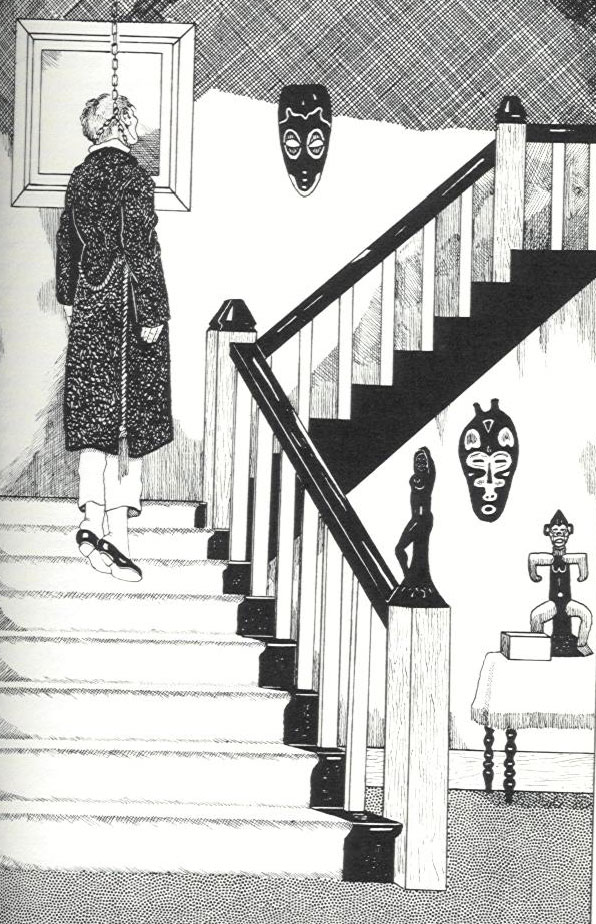
The Adventure of the Dog in the Manger
Date - March 16, 1925
The Case
Ahab Jepson was a mediocre actor; the son of the late Sir
Hesketh Jepson, a great actor. Jepson sued other actors for copying his father’s
methods and was disliked by all. Pons referred to his nuisance attitude as like
that of a ‘dog in the manger.’ When Jepson was found hanging above the staircase
in his family home, Detective-Sergeant Peter Cobbett of Stoke Poges requested
Pons to help. Four famous actors had been guests at the house when Jepson was
murdered and Cobbett wanted to avoid a press frenzy. Pons and Parker travel to
Stoke Poges and find a live-action melodrama.
Quotes
Ø Parker: I’ve not spoken a word in the last hour. You can’t even see me now. How did you know I was about to look up Ahab Jepson?
Pons: Dear me, these elucidations seem so needless. At breakfast you read with manifest interest the Times’ account of the murder of Ahab Jepson, a minor actor on the London and sometime provincial stage. An hour later, you tossed away the Daily Telegraph, folded to the page of new plays in review. You rose and walked to the shelf where I am accustomed to keeping the Peerage. No other conceivably useful reference book is kept there. Surely it is most elementary to infer that the reviews in the Daily Telegraph reminded you of Ahab Jepson’s murder and sent you to attempt the expansion of your knowledge in regard to the victim?
Ø Alas, poor Ahab! His exit was in keeping with his life – pompous, florid, somewhat ignominious, and in his customary bad taste.
Comments
Ø Regarding the problem and the solution, Dog in the Manger is one of the most innovative stories in the Pontine Canon. It is an expansion upon Holmes’ The Mystery of Thor Bridge, with a larger cast of potential villains and a larger-than-life victim in Ahab Jepson.
Who can’t fully visualize Jepson: sorely lacking in his predecessor’s talents but desperately clinging to a proprietary ownership of his father’s legacy and creations (ring a bell, Sherlockians?); filing suits and being a nuisance to maintain his tenuous claim to fame; finally wanting revenge upon those he is jealous of? Ahab Jepson is one of the best-developed characters in the Pontine Canon.
Ø A murder occurs at a county estate where several guests have motive. It is reminiscent of the Golden Age of detective fiction, perhaps lacking only a butler. The Pons stories were begun shortly after the last Holmes story appeared in print. New stories featuring detectives such as Mike Hammer, Philip Marlowe and Travis McGee competed for readers with Pons over the years. But Pons never evolved into some kind of Archie Goodwin or other ‘modern’ detective. He remained a visible reminder, in dress and methods, of the Victorian-era sleuth.
Ø Pons references a melodrama, The Four Who Returned, starring Randolph Sutpen. Sutpen was one of the four houseguests; the reader certainly views this as either heavy-handed foreshadowing or an obvious red herring.
Ø The first issue of the Solar Pons Gazette included two stories from the Slough Observer that showed what the local coverage of this case might have been like.
Return to Memoirs Home